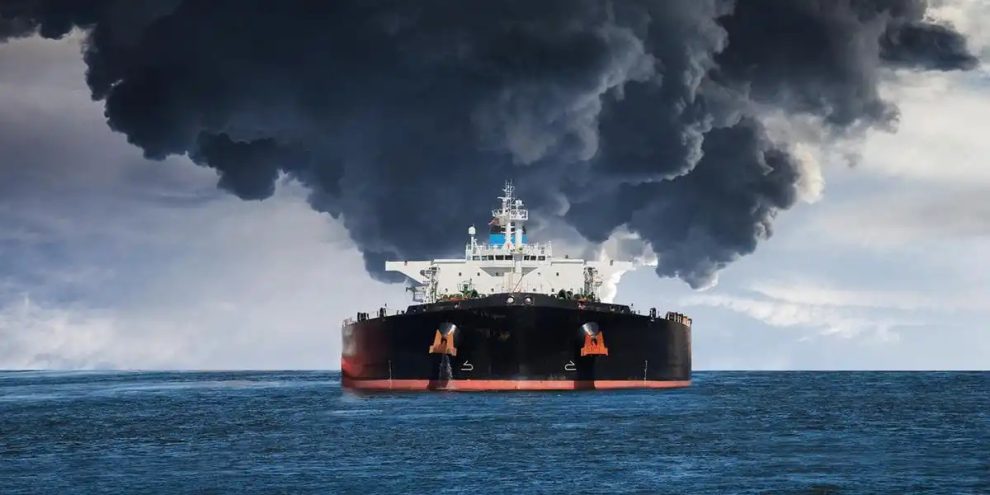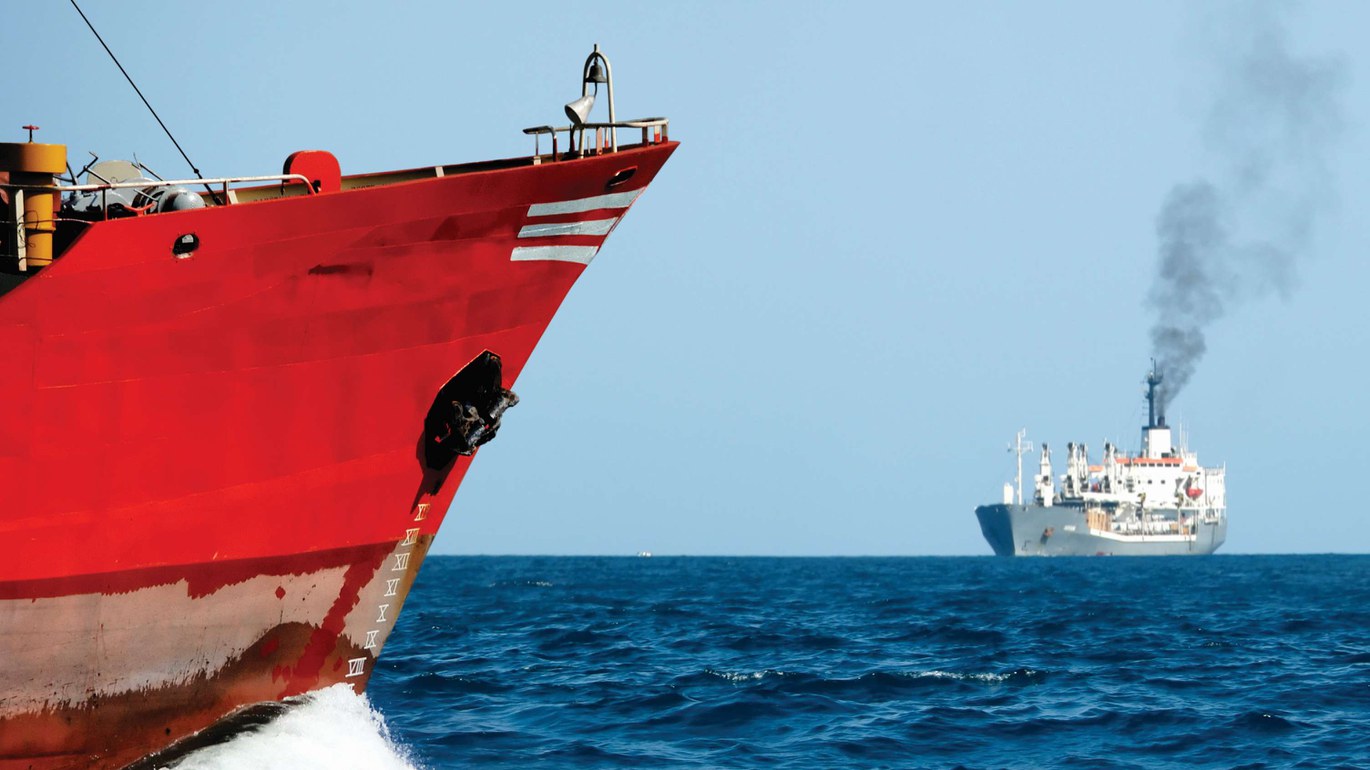There are 100,000 commercial vessels running in the shipping industry, consuming approximately 300 million tonnes of fuel annually. As a result, the maritime industry contributes 3% of global carbon emissions, having a negative impact on both the environment and marine life. It is vital to adopt sustainable ship management services and take steps towards zero carbon shipping.
The maritime industry is a global business, ranging from ships to mega yachts and cruise liners to merchant vessels. Over 80% of the world’s trade is transported via the ocean on ships, and operators are continually seeking greener solutions to reduce carbon emissions.
Due to increased scrutiny of its environmental practices and a growing awareness about climate change, the industry is implementing more eco-friendly alternatives and aims to decarbonise by 2050.
What is Decarbonisation?
Decarbonisation means to switch from using fossil fuels such as coal, oil, and natural gas, to carbon-free alternatives. To prevent carbon gases from being released into the atmosphere, it is essential to stop burning fossil fuels. Producing plastics for use onboard ships also uses high levels of energy, so new solutions to eliminate the use of plastics is vital.
For the transition to take place, carbon free alternatives involve the implementation of new technologies and scientific research. Creating energy sources that produce low levels of greenhouse gas emissions is the next step for sustainable shipping. Human activity produces high levels of carbon dioxide, so it’s necessary to adopt more eco-friendly practices on board ships and across the maritime industry.
Zero Carbon Shipping
The Mærsk Mc-Kinney Møller Center for Zero Carbon Shipping is a non-for-profit research centre based in Copenhagen, working with global partners in the energy and shipping sectors to explore viable decarbonisation pathways. The centre aims for decarbonisation of the maritime industry by 2050, driving and facilitating implementation of improved sustainable technologies.
As a centre with specialist knowledge and an industry-wide perspective, it aims to set the course for a sustainable transition by guiding the industry and promoting alternative solutions. The centre is recognised as a trusted advisor for maritime decarbonisation goals and takes social aspects into account, ensuring the transition is fair and safe for all involved. It aims to remove uncertainties and create zero carbon shipping solutions using scientific data and research.
In efforts to drive collaborative research, development, and innovation, the centre is a safe space for maritime players to team up in their shared mission of decarbonisation. The centre thoroughly informs and inspires transition pathways, providing strategic guidance using applied research. By advocating for regulatory reform, it aims to influence global, regional, and national decarbonisation policies in efforts to accelerate maritime decarbonisation.
Accelerating the transition to zero carbon shipping involves a multitude of stages, and the maritime industry is taking the necessary steps for a more sustainable future. The industry-wide transition requires technological advancements, industry leadership, and improved global policies.
Environmental Sustainability in the Maritime Sector
The maritime industry plays a crucial role in efforts to reduce the impact of climate change and create a healthier future for the planet. Due to growing environmental awareness and scrutiny of the sector, the industry is taking steps to reduce its negative impact on the environment and the world’s oceans. Adopting the best sustainable practices for ship management is required for the preservation of marine environments.
The maritime sector is measuring carbon emissions in all its practices and taking steps to adopt the highest standards for sustainable shipping. It is vital to continually seek solutions, and partners in the maritime industry are working together, alongside the The Mærsk Mc-Kinney Møller Center, to monitor their environmental impact and improve business practices.
Eliminating the use of single-use plastic is a crucial step in reducing pollution from vessels. The production of plastic bottles and single-use plastic items creates pollution in the ocean and causes harm to marine life. Introducing sustainable marine water solutions, such as the use of stainless-steel bottles and onboard water filtration systems, helps to eliminate the use of plastic bottles and protect the environment. The process of reverse osmosis means a constant supply of clean drinking water is produced onboard vessels, eliminating the need for producing plastic water bottles.
Regular professional upkeep of vessels and offshore infrastructure helps to improve ship performance and reduce the risk of corrosion – limiting corrosive particles entering marine ecosystems. Ongoing maintenance ensures safety and efficiency, improving fuel performance and productivity of vessels. Trained divers and engineers conduct essential underwater inspections, such as hull cleaning and propeller polishing, ensuring longevity of ships, and improving conditions for the environment.
Vessels have always relied on fossil fuels to function, so adopting sustainable ship management practices may be the solution. Ship management companies offer a digital dashboard where owners and operators have access to their data, allowing for better fuel management practices by planning ahead. These digital technologies allow operators to monitor the location of vessels, manage fuel consumption, and compare suppliers.
The Mærsk Mc-Kinney Møller Center is helping to accelerate environmentally sound practices at sea and onshore by providing improved solutions for energy management. Partners across the maritime industry are implementing environmentally sustainable business practices as they team up with each other and the centre.
Final Thoughts
For the maritime industry to decarbonise, it is vital to adopt sustainable ship management services and practices. Maritime partners and The Mærsk Mc-Kinney Møller Center are working together to discover solutions for zero carbon shipping. By exploring the unknown and making bold decisions, the centre is at the forefront of collaborative climate action. Ensuring safe and sustainable solutions for decarbonisation is critical to protect the future of this planet.
A collaborative effort amongst the maritime industry is driving operators and industry policy makers to make better decisions. As the centre inspires and influences the industry to adopt urgent change, it aims to show the world that zero carbon shipping is possible.
Amongst the maritime eco-system – from policymakers to ship owners – there is a zero-carbon vision happening, which may be the solution we need. While these changes are taking place, the first step is to adopt more sustainable practices wherever possible. If decarbonisation is the future, it is going to take time, so implementing sustainable ship management services and practices is the first step to optimising vessel efficiency.












